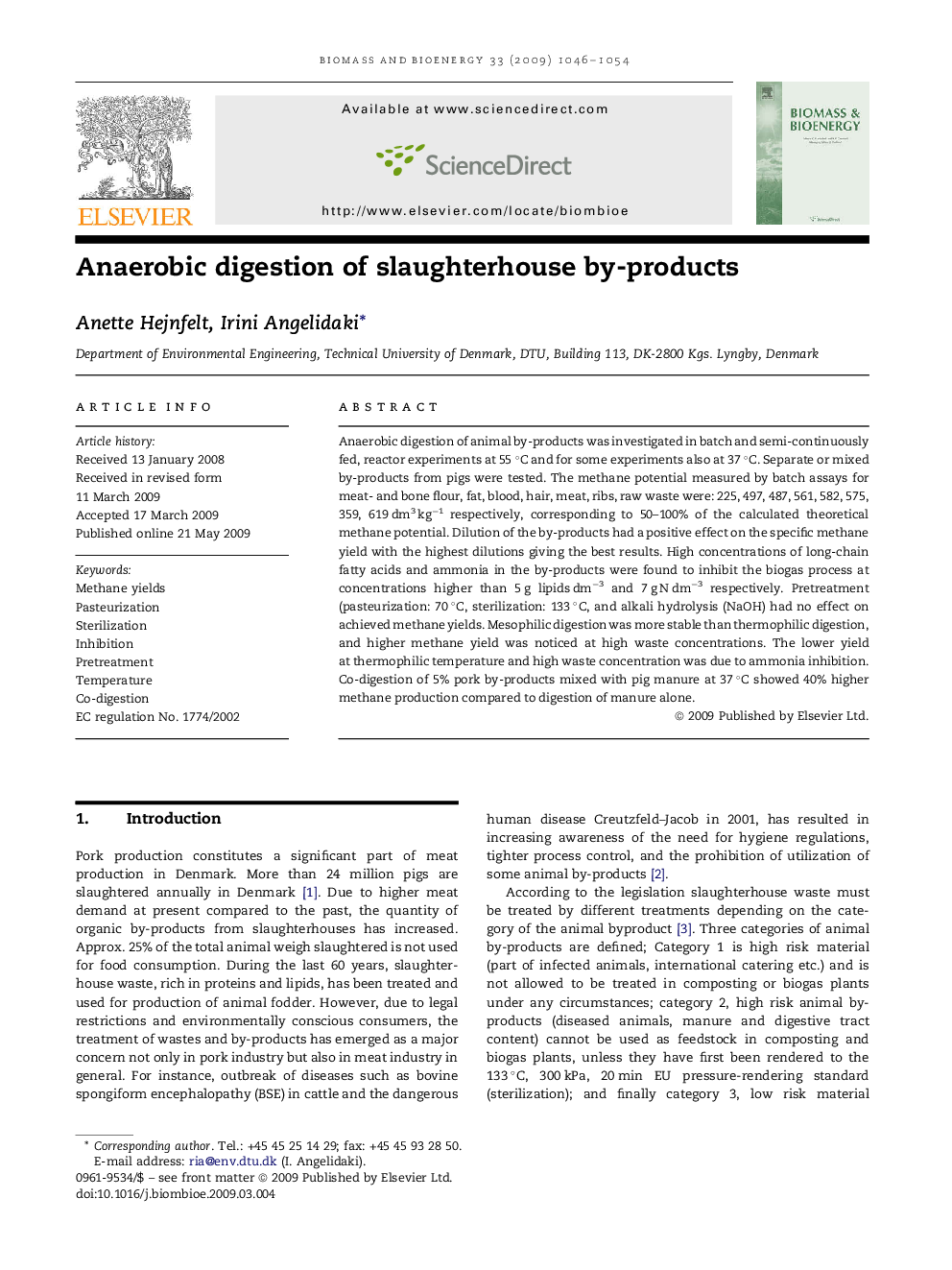| Article ID | Journal | Published Year | Pages | File Type |
|---|---|---|---|---|
| 678330 | Biomass and Bioenergy | 2009 | 9 Pages |
Abstract
Anaerobic digestion of animal by-products was investigated in batch and semi-continuously fed, reactor experiments at 55 °C and for some experiments also at 37 °C. Separate or mixed by-products from pigs were tested. The methane potential measured by batch assays for meat- and bone flour, fat, blood, hair, meat, ribs, raw waste were: 225, 497, 487, 561, 582, 575, 359, 619 dm3 kgâ1 respectively, corresponding to 50-100% of the calculated theoretical methane potential. Dilution of the by-products had a positive effect on the specific methane yield with the highest dilutions giving the best results. High concentrations of long-chain fatty acids and ammonia in the by-products were found to inhibit the biogas process at concentrations higher than 5 g lipids dmâ3 and 7 g N dmâ3 respectively. Pretreatment (pasteurization: 70 °C, sterilization: 133 °C, and alkali hydrolysis (NaOH) had no effect on achieved methane yields. Mesophilic digestion was more stable than thermophilic digestion, and higher methane yield was noticed at high waste concentrations. The lower yield at thermophilic temperature and high waste concentration was due to ammonia inhibition. Co-digestion of 5% pork by-products mixed with pig manure at 37 °C showed 40% higher methane production compared to digestion of manure alone.
Related Topics
Physical Sciences and Engineering
Chemical Engineering
Process Chemistry and Technology
Authors
Anette Hejnfelt, Irini Angelidaki,
